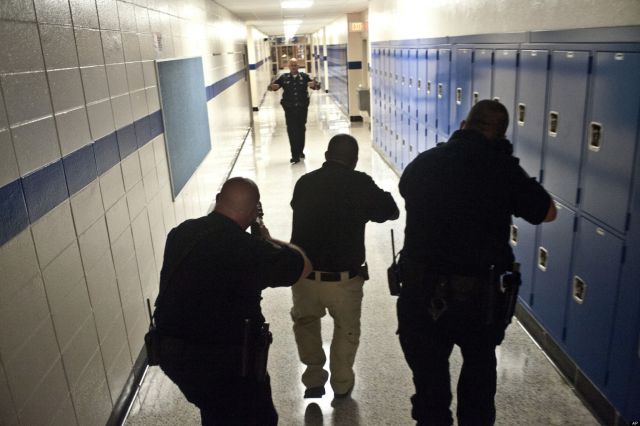

BEER-SHEVA, Israel…September 8, 2015 — Ben-Gurion University of the Negev (BGU) researchers have developed a personality profiling technique, featured in Frontiers in Forensic Psychiatry, which automates the identification of potential school shooters by analyzing personality traits that appear in their writings.
“School shooters present a challenge to both forensic psychiatry and law enforcement agencies,” explains Prof. Yair Neuman, a member of the BGU Homeland Security Institute. “There is currently no clear consensus or clinical diagnosis that can be used for screening shooters. Finding a single shooter in a large population, as well as a lack of clinical diagnosis before an occurrence adds to the complexity.”
The study details the text-based computational personality-profiling tool, which uses “vector semantics.” This involves constructing a number of vectors representing personality dimensions and disorders, which are analyzed automatically by computer to measure the similarity with texts written by the human subject.
“For example, an investigator may want to measure the extent in which narcissism is manifested in a text,” Neuman explains. “First, we define a vector of words representing this personality such as ‘arrogant,’ ‘manipulative,’ ‘egocentric,’ and ‘insensitive.’ The computer measures the distance between the vector of words comprising our target text and those representing narcissism in a high-dimensional semantic space. The closer the vectors appear, the higher the writer’s narcissistic ranking.
In this study, BGU researchers selected writings by six shooters involved in a number of high-profile scenarios worldwide, including the Virginia Tech Massacre in 2007. Then they analyzed and compared these with writings by 6,000 bloggers and tasked the computer to identify the shooters.
Although pinpointing a single person wasn’t the goal, the tool was able to significantly reduce the pool of suspects to only three percent of the original sample, which included the writings of all six shooters. This shows that using intelligent technology can significantly reduce the effort needed to identify shooters or even solo terrorists.
The methodology is automatic, which also enables screening a massive number of texts in a short time, which could aid in detection.
“While ethical considerations are inevitable, we can definitely imagine a situation in which parents give the school permission to scan their teenagers’ social media pages under certain limitations. In this context, using our automatic screening procedure, a qualified psychiatrist or psychologist who is trained may automatically get red flag warnings for students whose texts express a high level of potential danger,” explains Neuman
“The proposed methodology does not pretend to solve the enormous difficulties in profiling and identifying school shooters, but modestly adds another tool to the tool kit of forensic psychiatry and law enforcement agencies,” Neuman says. “We believe our methodology can gain more validity with the ranking/prioritization process of suspects, similar to the automatic identification of sexual predators created to prioritize an investigation.”
The other researchers involved in this study include: James L. Knoll, a leading forensic psychiatrist, State University of New York, Upstate Medical Center, Syracuse, New York; Dan Assaf, an independent researcher from Petah-Tikva, Israel and Yochai Cohen, chief executive officer of Gilasio Coding, Tel Aviv, Israel.
About American Associates, Ben-Gurion University of the Negev





